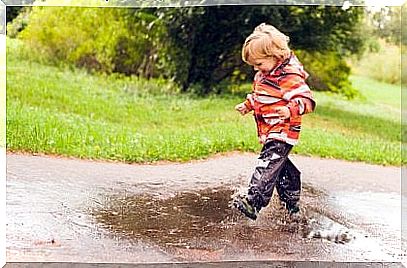Applying Reverse Psychology

You’ve certainly used reverse psychology at some point, even if you didn’t or didn’t know the power it contained. Basically, the meaning of reverse psychology is that you take a particular position in a dispute because another person would take the opposite position.
Teenagers are experts in the application of reverse psychology. When they fight in search of their identity and identity, one thing they really hate is that they are conditioned or told to do something. So just to defy them, they do just the opposite of what they are told, even if they know deep down that a parental suggestion or command is the best option.
But reverse psychology really isn’t just a teen trick. Although it later changes slightly, it is also used frequently by adults, some more than others.

Imagine a 5-year-old boy who refuses to eat his vegetables. The mother urges him to eat the dish empty, but it is useless: the son does not eat carrots or zucchini. If he continues to be pressured, the situation will always end badly. The mother gives up and the son runs happily to play.
However, a mother cannot always let her child not eat healthy vegetables. So he has to create a plan to make the vegetables look more attractive in the child’s eyes: just the opposite of what they are (soft and dull in the child’s mind).
When we use reverse psychology, the food really does look more attractive in the eyes of the child. Each of us has experienced the feeling of how our curiosity increases when something is forbidden to us. This happens as much in childhood as in adulthood because parents so often forbid their children to do things they find fun.

Another reason for this behavior may be related to the sense of confidence you feel in a particular situation. If you feel insecure and someone encourages you to take a risk, you are more likely to choose that more normal or less risky behavior.
On the contrary, when we feel confident, we lean towards the riskier option much more resolutely if someone tries to get us to choose a safe alternative.
Thus, we can say that such a contradiction usually does not completely determine the side we choose to do, but it makes us lean more significantly and stronger to either side.
The example of a child refusing vegetables is quite simple, so let’s look at an example of an adult next. Namely, reverse psychology is very often used in business.
For example: a company offers elective courses to its employees. But because they are held after business hours, no one signs up. The supervisor then informs the employees that from the following month the courses will be reduced and eventually the benefits will be completely lost.
With this strategic transfer, the company is not really removing courses, but employees are realizing that they have valuable resources at their disposal and that if they are not used, they may be replaced by something less interesting. No one likes to lose something that has value, even if the person didn’t understand it before it is being taken away.
The three stages of reverse psychology
It’s not about banning or not accepting things just because other people would do what we want. There are some “conditions” to prevent manipulation from becoming a bad habit:
1. Who are you using it for and why?
Answer this question in your mind before using reverse psychology. If you want to get your child to get dressed or stop watching TV, take action. But if it’s meant to convince potential customers to buy a new (useless) product, you might want to think twice.
2. What effects can it have?
Sometimes your perfect plan doesn’t go quite the way you had imagined it to go. Your teenage child doesn’t want to do housework, you use reverse psychology and he responds happily, “great, now I can finally go back to playing video games.”
3. How free does a person want to feel?
The greater his need to feel in control (the need to feel that the decisions he makes are in accordance with his own will), the more likely he is to follow a different path than we suggest. For example, a person who does not like regulations would be a good candidate for reverse psychology.









